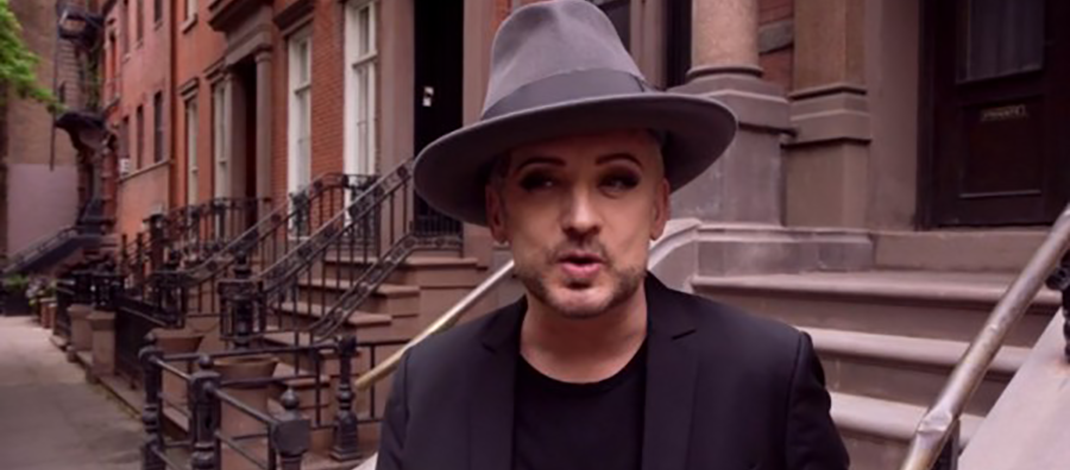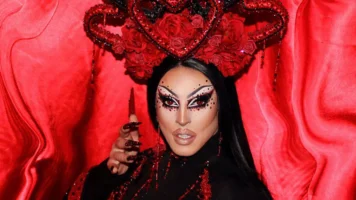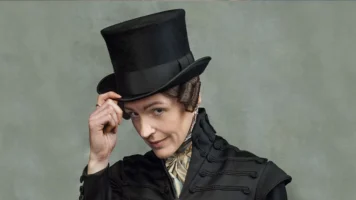BBC Four, BBC Radio 6 Music and BBC Radio 2 will also be featuring programming with some of the key names from the decade. On BBC Four The Selecter’s Pauline Black presents the third instalment of People’s History of Pop, film-maker and DJ Don Letts presents Skinhead, a documentary about this provocative movement, plus there’s a treat from the archives with Classic Albums: Catch a Fire – Bob Marley.
6 Music takes on the sound of one day in 1979 and Radio 2 delivers 70s versions of all its specialist music shows. And, following their daylong tie in exhibition linked to the 1960s part of My Generation, the Victoria and Albert Museum in London will be holding another special day celebrating the 1970s on Saturday 8 October.
BBC Music: My Generation is a year-long landmark season of programming charting the history of popular music across the decades from the mid-1950s to the noughties through the memories of the people who were there. This major BBC season airs in five instalments across the year with the fans and the musical icons of the time giving their own unique perspectives. The season launched in April with a look at the decade of music from the 1950s, continuing in July with the 1960s.
Cassian Harrison, Editor, BBC Four, said: “With My Generation season reaching the 1970s, we’ll be bringing viewers an incredible range of programmes, with the brilliant Boy George telling the story of his formative years, Pauline Black meeting music fans, and Don Letts giving his fascinating insight into the Skinhead movement.”
On BBC Two Boy George’s 1970s: Save Me from Suburbia looks back to September 1982 when an unknown George Alan O’Dowd – aka Boy George – appeared on the BBC’s Top of the Pops with his group, Culture Club, singing Do You Really Want to Hurt Me?. The next day, the British press went wild. Totally bewildered by his appearance, they asked ‘Was he a boy or a girl?’ in hand-wringing horror. British teens on the other hand loved it and sent it to Number 1 in the charts; the rest of the world would soon follow resulting in Number 1’s in 23 countries. To date, Boy George is a Brit and Grammy Award-winning artist who has sold over 100 million singles and in excess of 50 million albums. He is also the author of two bestselling autobiographies, a fashion designer, a Broadway producer and, arguably, single-handedly the public figure who did most to usher in a new era of sexual tolerance in Britain at a time when being gay was not widely accepted.
In this film George will recall, revisit and assess how the 1970s moulded the person and artist he would become. This is his musical, social and sexual coming of age, when he discovered the power of his own sexuality before setting about turning that persona into a popstar. Set against a backdrop of social discord, disenfranchisement & sexual repression – the seventies was also conversely the decade that revelled in colour and creative chaos giving the world glam rock, disco & punk… and the young George O’Dowd was at the birth of them all. The documentary includes contributions from contemporaries like Martin Degville (Sigue Sigue Sputnik), Andy Polaris (Animal Nightlife), DJ Princess Julia and pop star Marilyn this is, as George said “the last ever bonkers decade”, and it totally and completely shaped him.
Boy George says: “I think of the ‘70s as being this glorious decade where I discovered who I was and discovered all these amazing things… punk rock, electro music, fashion, all of that. And yeah of course there was that dark side to the ’70s, the rubbish, the strikes, the poverty and I’d get chased and confronted for the way I looked. But I was a teenager. I didn’t have any time for misery I was just having a great time with my friends. My ‘70s were all about Bowie, Bolan, dressing up and going out, I think of it as the last bonkers decade, and I loved every second.”
In Skinhead for BBC Four, director and DJ Don Letts looks at this very particular and very provocative British subculture. Don explores how skinhead has become associated with street fighting, trouble on the football terraces and violent racism in the public consciousness, both in Britain and around the world. He reveals that its origins actually lie in a cultural coming together that could not be further from its tarnished image.
Don Letts said: “When I tell people my first point of entry into youth subculture was via skinheads they look somewhat confused, not understanding I’m talking about the fashion version not the fascist version. I hope my film goes some way to clarifying what was the UK’s first real multi-cultural movement.”
In fascinating detail Don shows how the roots of skinhead are found in a brilliant cultural collision between the young white working class kids and their Jamaican counterparts in British inner cities, a moment of multicultural harmony. Don traces the history of skinhead from the late 60’s to right now looking at the music and styles, from the reggae influenced Ska to the punk influenced Oi. Throughout Don, meets people who were committed members of various skinhead scenes and he considers the conflicts and the contradictions that the movement has attracted over five decades.
Lead singer of ska group The Selecter, Pauline Black will present the third episode of BBC Four’s People’s History of Pop looking at the years 1976-1985, when punk hit Britain and a staggering array of rival tribes exploded onto the high street. This is the era when people’s lives were changed by the Sex Pistols, when pop kids went wild for Duran Duran and we all came together for Live Aid to help the Ethiopian famine.
The programme uncovers rare treasures – a gig promotor who has saved the mint condition posters from the Sex Pistols’ Anarchy in the UK tour in 1976 after the date was cancelled by the venue; a man who auditioned to sing on the Sex Pistols ‘The Great Rock ‘n’ Roll Swindle’ and has some mementoes from the day including a tambourine which Sid Vicious punched his fist through while they were performing; and the son of artist Ray Lowry shares his father’s beautiful sketchbooks from The Clash’s tour of America in the summer of 1979 when Ray was asked to go on tour with the band as their ‘war artist’. And curator Gordon McHarg shares an extraordinary discovery from Joe Strummer’s personal archive, his handwritten notebook for the making of ‘Combat Rock’, packed full of his thoughts, alternative lyrics and songs that didn’t end up getting on the final album.
Contributors include a Durannie who shares her love of the ‘Rio’ album to the horror of her fiancé, a die-hard punk; a Smiths fan who still has the original setlist from the band’s 1983 Dingwalls gig in Camden; a former punk who’s saved all his Rock Against Racism posters; a man who recorded his ‘Records for the Day’ every day in an amazing picture diary; and a woman shares the story of a magical night out with Steve Strange and the Blitz Kids.
Presenter Pauline Black says: “During this period I came of age as a musician in the 2-tone movement. I loved how punk pricked the bloated balloon of prog rock. I cheered when young black British musicians, influenced by the sounds of Jamaica and, led by the mighty Steel Pulse, showed us on pop TV the roots of our own oppression. It was a time when young people, burdened with the rise of Thatcherism and unemployment, let out a rebel yell and tore up the musical rule book, producing bands like The Clash who forged a political path in music that many of us marched down at that time.”
She continues: “Back then what you wore and the music you listened to helped define your socio-political viewpoint. Rock Against Racism showcased like-minded bands for those fans that had been disgusted by the racist rhetoric of one of rock’s premier guitarists. It’s an honour to share this programme with those fans that shed a uniquely fascinating light on those tumultuous years”.
On BBC Four, Classic Album: Catch a Fire – Bob Marley is a real treat from the archives, made in the 1990s.
This one-hour documentary looks at the making of the 1973 Wailers album, Catch A Fire, the album that brought international recognition to Bob Marley. Already big names in their native Jamaica, it took until this release for Marley and Co to finally go global. It features interviews with key musicians and engineers who helped make the album, as well as record label boss, Chris Blackwell, who talks about how the band had song-writing and performing skills in abundance, but needed to be put through the equivalent of a ‘rock blender’ to make them palatable to a wider audience.
Through first-hand accounts, this programme tells how they did just that. BBC Radio 6 Music goes back to 1979 on Friday 14 October imagining what the station would have sounded like had it been on air that day almost four decades ago. The shows will recreate and reflect the music and popular culture from that time, including interviews with key musicians from some of the most important bands of the late 70s. And across the weekend on Saturday 14 and Sunday 15 October, the station looks at the birth of punk and its relationship with dub reggae.
BBC Radio 2 will be supporting this next phase of My Generation with a Sounds of the 70s special, presented by Johnnie Walker (Sunday, 3pm); Pick of the Pops covers 1972 and 1979 (Saturday, 1pm); and Friday Night Music Night presents 1970s Movie Blockbusters (Friday, 8pm). Plus there will be a 70s focus across the station’s specialist music shows – Soul with Trevor Nelson (Saturday, 8pm), Musical Theatre with Elaine Paige (Sunday, 1pm), Blues with Paul Jones (Monday, 7pm), Jamie Cullum’s Jazz Show (Tuesday, 7pm), The Folk Show with Mark Radcliffe (Wednesday, 7pm), Bob Harris Country (Thursday, 7pm) Desmond Carrington 70s special (Friday, 7pm).
BBC Radio Ulster will be supporting the 70s decade of the season with another chance to hear ‘The Undertones at the BBC’, a special hour long concert from earlier this year which marked the band’s 40th anniversary. It was recorded in front an audience at the BBC’s Blackstaff Studios in Belfast. There will also be tailored programming and guests across the station’s regular shows, including a Times Of Our Live Special remembering the decade with Colum Arbuckle and guests, reflecting on life in Northern Ireland in the 70s.
On BBC Radio Scotland, Bryan Burnett will be supporting the seventies decade of the season with a chance to shape a special Get It On dedicated to listeners’ memories of music and fashion of the 1970’s.
Throughout the week on BBC Radio Wales, Wynne Evans (weekdays, 11am) and Eleri Sion (weekdays, 1.15pm) will be dialling up the nostalgia with the sounds and fashions of the 1970’s. Owen Money opens the lines for classic 70’s requests and memories (Saturday, 9am). Lynn Bowles digs out all that music memorabilia from the attic to find out if it’s worth anything (Sunday, 2pm) and Alan Thompson looks back at the impact that the 70’s Mod revival had in Wales (Sunday, 11pm).
In collaboration with the BBC Music’s My Generation season, and to celebrate the V&A’s exhibition – You Say You Want a Revolution? Records and Rebels 1966 – 1970 – the V&A will celebrate the 1970s with a day of free talks and events on Saturday 8 October. ‘The 70s: What’s Not to Love’ will include talks and interviews with key players from the period and cultural historians, with subjects ranging from the punk explosion to Glastonbury during the decade, glam rock and the development of electronic music. Additionally, BBC Four’s People’s History of Pop team will be at the V&A for the day, inviting the public to bring along their own music memorabilia from the 1970s to the present day, and tell their story about it.
Skinhead was ordered by Cassian Harrison, Channel Editor, BBC Four, and commissioned by Jan Younghusband, Head of Commissioning, Music TV. It is being made by 7Wonder, the executive producer is Steve Condie, the producer is John Osborne, director is Don Letts. Executive produced for the BBC by Emma Cahusac.
Classic Album: Catch a Fire – Bob Marley was executive produced by Nick de Grunwald and directed by Jeremy Marre for Isis Productions. Executive produced for Eagle Rock Film Productions by Terry Shand and Geoff Kempin. Executive producer for the BBC is Emma Cahusac.
People’s History Of Pop was ordered by Cassian Harrison, Channel Editor, BBC Four, and commissioned by Jan Younghusband, Head of Commissioning, Music TV. It is being made by 7Wonder, the executive producer is Steve Condie, the producer is Zoe Jewell. Executive produced for the BBC by Emma Cahusac.
Boy George’s 1970s: Save Me from Suburbia was commissioned for BBC Two by Jan Younghusband, Head of Commissioning, Music TV. It is being made by IWC Media, the executive producer is Paul Murray, producer/director is Ian Denyer. Executive produced for the BBC by Emma Cahusac.
Photo by Press Party/BBC




